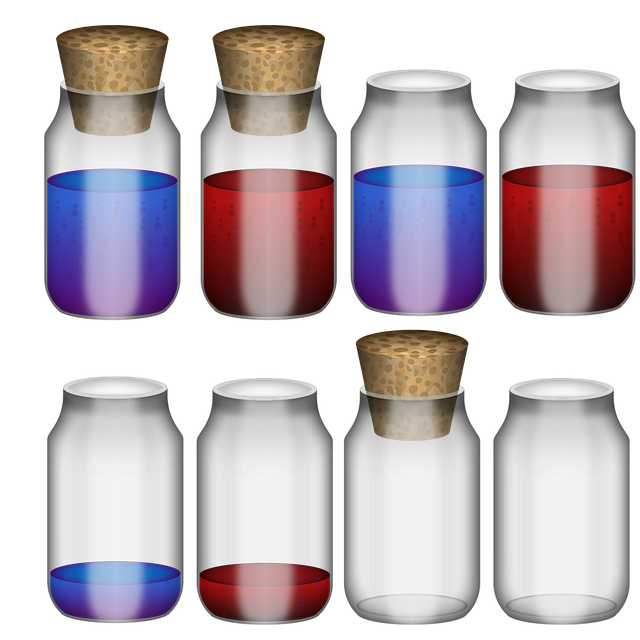High-risk situations pose significant challenges for maintaining long-term sobriety, but proactive measures can prevent relapse. Creating personalized relapse prevention plans involves identifying unique triggers through introspection and developing effective coping strategies, including stress management and social support. Sobriety networks offer peer accountability, while co-occurring disorder treatment addresses holistic mental health. Consistent motivation, set goals, participate in support groups, and engage in self-care practices ensure individuals remain committed to their sobriety journey.
Personalized relapse prevention plans (PRPPs) empower individuals to regain control of their lives and maintain long-term sobriety. By understanding high-risk situations—those triggering cravings or leading to relapse—people can proactively manage these challenges. This article guides you through creating a PRPP, offering practical steps to identify and navigate at-risk scenarios. Additionally, it explores strategies for staying motivated, highlighting essential ways to sustain long-term sobriety and embrace a fulfilling, alcohol-free life.
- Understanding High-Risk Situations and Their Impact on Sobriety
- Creating Personalized Relapse Prevention Plans: A Step-by-Step Guide
- Strategies to Stay Motivated and Maintain Long-Term Sobriety
Understanding High-Risk Situations and Their Impact on Sobriety

High-risk situations can be powerful triggers for relapse, especially for those striving for long-term sobriety. These moments, often filled with stress, emotional turmoil, or exposure to old habits and environments, can undermine hard-fought progress. Understanding these high-risk scenarios is a pivotal step in staying motivated and maintaining sobriety. They might include social gatherings where alcohol or drugs are present, specific locations that hold painful memories, or even certain emotions like anxiety or loneliness.
By identifying these triggers, individuals can develop strategies to navigate them effectively. Personalized relapse prevention plans, tailored to each person’s unique needs and experiences, offer a powerful tool for managing high-risk situations. These plans often incorporate strategies such as practicing mindfulness techniques, establishing healthy coping mechanisms, and creating a support network—all of which contribute to long-term mental health and well-being, ensuring individuals have the resources needed to stay motivated and on track for sobriety.
Creating Personalized Relapse Prevention Plans: A Step-by-Step Guide

Creating Personalized Relapse Prevention Plans involves a collaborative process between individuals in recovery and their support system. The first step is identifying triggers unique to each person’s journey, such as specific locations, emotions, or stress-inducing situations that could lead to a relapse. This can be achieved through introspection, journaling, or discussions with therapists or support groups like those offered during Group Counseling Sessions. Understanding these triggers is crucial for developing effective coping strategies.
Next, develop a comprehensive plan tailored to these triggers, incorporating strategies like stress management techniques, alternative activities, and social support mechanisms. Sobriety Support networks play a vital role here, providing peer accountability and empathy. For instance, individuals might commit to regular exercise or meditation to manage stress, call on a sponsor or fellow recovering individual for emotional support during high-risk times, or attend group meetings to foster a sense of community. Co-occurring disorder treatment options should also be considered if mental health challenges coexist with substance abuse, ensuring a holistic approach to ways to stay motivated in long-term sobriety.
Strategies to Stay Motivated and Maintain Long-Term Sobriety

Maintaining long-term sobriety is a rewarding yet challenging journey, and staying motivated is essential. Personalized relapse prevention plans play a pivotal role in this process by empowering individuals to take an active role in their recovery. One effective strategy is setting realistic goals and milestones that celebrate small achievements. These goals provide a sense of purpose and direction, encouraging continued progress. For instance, a person might aim to remain sober for a specific period, attend support group meetings regularly, or develop healthy coping mechanisms for stress management.
Rehabilitation Centers Near Me offer valuable resources such as Stress Management Workshops for Addiction Recovery, which teach individuals techniques to navigate triggers and high-risk situations effectively. Ongoing guidance from recovery support services is crucial in fostering motivation and accountability. These services provide a safety net during challenging times, offering strategies to reframe setbacks as learning opportunities rather than failures. By incorporating these practices into daily routines, individuals can build resilience, enhance self-care, and strengthen their commitment to long-term sobriety.
Personalized relapse prevention plans, by empowering individuals to anticipate and manage high-risk situations, prove to be a robust strategy for maintaining long-term sobriety. By following a structured guide and employing effective motivation techniques, those on the path to recovery can create a tailored roadmap that supports their journey. Staying motivated involves a combination of self-awareness, coping mechanisms, and a strong support system. Embracing these strategies ensures individuals are equipped to overcome challenges and sustain their newfound sobriety.






